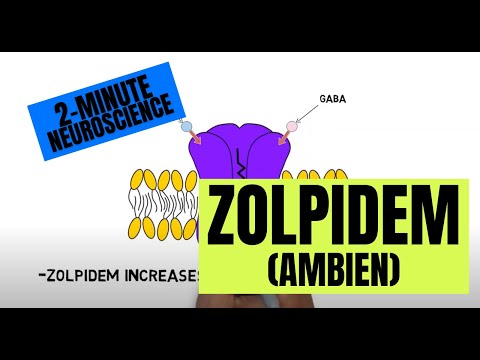- Subjects: Neurosciences
- |
- Contributor:
- Neuroscientifically Challenged
- Wernicke-Korsakoff syndrome
- Wernicke’s encephalopathy
- Korsakoff syndrome
This video is adapted from: https://www.youtube.com/watch?v=otIBWpiQISI
This video discusses the symptoms, treatment, and primary cause of Wernicke-Korsakoff syndrome, as well as how the condition affects the brain. [1][2][3]
TRANSCRIPT:
Wernicke-Korsakoff syndrome is a condition that involves the presence of two related disorders: Wernicke’s encephalopathy and Korsakoff syndrome. Wernicke-Korsakoff syndrome is typically linked to alcoholism, although alcohol consumption is not always a factor. Patients suffering from Wernicke’s encephalopathy commonly experience confusion and disorientation, but may also display eye movement disturbances and movement and gait abnormalities. Korsakoff’s syndrome appears in patients who do not completely recover from Wernicke’s encephalopathy. It involves extensive memory deficits as well as a number of other cognitive and behavioral changes. Korsakoff’s patients typically have a severely impaired ability to form new memories, although the recall of previously formed memories is also affected.
Wernicke-Korsakoff syndrome is caused by a deficiency in the vitamin thiamine, also known as vitamin B1. Thiamine is an essential nutrient, and a thiamine deficiency can impair processes like the utilization of carbohydrates for energy, impacting all organs of the body. The brain, however, is especially affected, as thiamine deficiency can disrupt processes like the synthesis of neurotransmitters, maintenance of membrane potential, and myelination. Alcohol consumption can interfere with thiamine in a number of ways, such as by impairing its absorption from the small intestine, affecting its transport into the brain, and disrupting its utilization.
Within a matter of weeks, thiamine deficiency can result in damage to the brain that is linked to the symptoms mentioned earlier. Common areas that are affected include the mammillary bodies and hypothalamus, thalamus, cerebellum, cortex, and brainstem. In order to minimize negative effects on the brain, when Wernicke’s encephalopathy is suspected, patients are treated with thiamine supplementation. When done promptly, this may lead to a full recovery, but when treatment is delayed patients may die or progress to Korsakoff’s syndrome, and Korsakoff’s syndrome is generally considered irreversible.
- Arts NJ, Walvoort SJ, Kessels RP. Korsakoff's syndrome: a critical review. Neuropsychiatr Dis Treat. 2017;13:2875-2890. Published 2017 Nov 27. doi:10.2147/NDT.S130078
- Chandrakumar A, Bhardwaj A, 't Jong GW. Review of thiamine deficiency disorders: Wernicke encephalopathy and Korsakoff psychosis. J Basic Clin Physiol Pharmacol. 2018;30(2):153-162. Published 2018 Oct 2. doi:10.1515/jbcpp-2018-0075
- Sechi G, Serra A. Wernicke's encephalopathy: new clinical settings and recent advances in diagnosis and management. Lancet Neurol. 2007;6(5):442-455. doi:10.1016/S1474-4422(07)70104-7


























































































































































